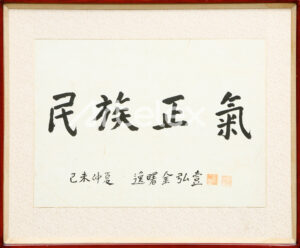Kim Hong-il (1898-1980) was an independence activist, military officer, and politician during the Japanese colonial period.
He played a crucial role in the Korean Independence Army and the Chinese National Revolutionary Army, actively participating in anti-Japanese resistance and the Korean independence movement.
After graduating from the Chinese Army Military Academy in 1920, Kim Hong-il joined the Korean Independence Army and took part in armed resistance against Japanese forces. He held various positions, including cadet commander, instructor, and company commander, and contributed significantly to battles against the Japanese. He also served as the deputy commander of the Joseon Volunteer Army.
In 1932, under the request of Kim Gu, Kim Hong-il played a critical role in the production of bombs used in two key assassination attempts: Lee Bong-chang’s January 8th attempt to assassinate the Japanese emperor and Yun Bong-gil’s April 29th bombing in Shanghai.
Although Lee Bong-chang’s attempt failed, Yun Bong-gil’s bombing successfully eliminated several high-ranking Japanese officials at Hongkou Park in Shanghai.
During his service in the Chinese military, Kim held positions such as head of the Shanghai Military Arsenal and director of the rear intelligence department of the 19th Route Army. He also planned the bombing of the Japanese warship Izumo, although the plan did not come to fruition.
Throughout his time in the Chinese National Revolutionary Army, Kim continued to support Korea’s independence movement behind the scenes.
In 1945, Kim was appointed Chief of Staff of the Korean Liberation Army’s General Headquarters and played a leading role in protecting and repatriating Koreans living in Manchuria after Korea’s liberation.

